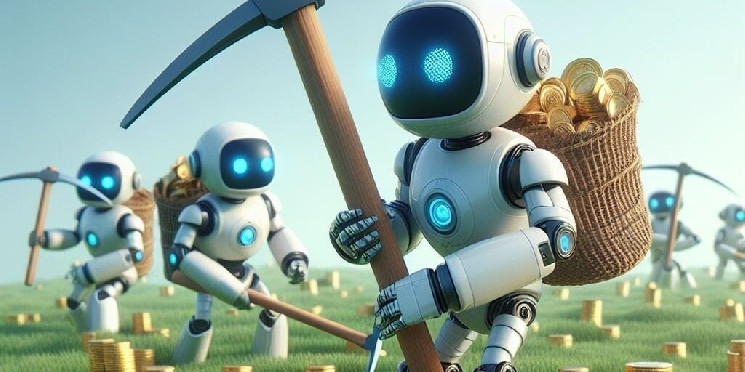Notcoin is a meme coin that, for now, is just an idea. It may be minted on the $TON blockchain in the future, but for now the project is more of an internet marketing plot than a real cryptocurrency. Notcoin is not currently being “mined,” so calling the Notcoin button-clicker app on Telegram a “mining game” is technically a misnomer.
“No one knows if or when Notcoin will be minted. No one knows if it will be worth anything or not,” an automated Telegram message reads when learning how to play the Notcoin “game.”
A statement from the $TON Foundation—which supports The Open Network ($TON), which was initially incubated within Telegram before the company backed out due to regulatory scrutiny—further confuses the issue: “Notcoin will soon launch a $TON-based digital asset.”
The same press release then offers the conflicting disclaimer that: “There is no Notcoin token, and a Notcoin has no market value. Notcoin operates as an in-game virtual asset within Telegram’s Web3 ecosystem and does not function as a cryptocurrency.”
🚀 @thenotcoin, #$TON-based P2E game on Telegram, has reached 4.1M+ users in just 1 week, becoming the fastest-growing Web3 game ever, on the world’s fastest #blockchain!
Let’s discover how 🧵⬇️ pic.twitter.com/vZt8gaAYQf
— $TON 💎 (@ton_blockchain) January 9, 2024
The Ton Foundation’s mixed messaging is unclear: Will Notcoin be a real cryptocurrency—or not?
Notcoin isn’t a real cryptocurrency right now, but “plans for a future token mint and distribution” are on the horizon, a rep for the project told Decrypt via email.
It’s worth noting that Notcoin’s nine-page whitepaper supposedly dated November 2023 is entirely blank. Their click-and-collect interface was launched to the public within the past week following a public beta period that started in November.
While over 1.2 trillion Notcoin has already been “collected” through what the $TON Foundation calls a “Telegram mini app,” according to a statement, the meme coin does not really exist yet, so it does not yet have a price and players are not able to cash out.
Players are apparently able to buy boosts, though, with real fiat currency “donations” that promise more Notcoin rewards per tap.
Anyone can boost any squad now to recruit more people.
Higher bid — higher the position in “Join Squad” list. The bid lasts for 24 hours.
Decentralized recruitment.
No more suggested squads.
New features for squads are coming.
Boost your squad, if you want.
Or not. It is… pic.twitter.com/jQmF74bub1
— Notcoin Ø (@thenotcoin) January 9, 2024
Who’s behind Notcoin, anyway? A statement from the $TON Foundation says that Open Builders is behind the maybe-meme-coin. Open Builders is dedicated to funding projects on $TON and is connected to Tonstarter, which raised $1.5 million in seed funding last year to fund Ton-based projects.
“The Open Builders team is not ready to release any more details about the token distribution at this point,” the Notcoin rep told Decrypt.
Another Notcoin rep told Decrypt that Open Builders consists of ten members in total and is led by founder Sasha Plotvinov (one Ton-related website lists Plotvinov as the CEO of Tonstarter).
Open Builders’ Notcoin is not to be confused with a previous Notcoin, whose typo-riddled website promised a cryptocurrency launch of the same name but on BNB Chain back in 2019.
Notcoin. Day 9.
5M+ Notcoiners.
Like the population of Ireland, Norway or Singapore.
Not Kingdom. pic.twitter.com/dMCZPvbgPs
— Sasha Ø (@takoy_sasha) January 9, 2024
The $TON blockchain and its $TON token were initially built by the Telegram team before it abandoned the project in 2020, so it makes sense that the Notcoin click-to-collect experience is being operated through the social messaging platform favored by many in the crypto industry (including crypto scammers, unfortunately).
In its blog post, the $TON Foundation touts Notcoin as a “virality masterclass” and claims that the clicking interface has already seen over four million players. The Notcoin team itself now puts the figure above five million. But as with most blockchain games, it’s difficult to verify how many participants are real players—and how many might be bots trying to game a potential token airdrop ahead.
Edited by Andrew Hayward
 decrypt.co
decrypt.co
